'The Home Edit’s Clea Saved Her Own Life After Finding A Lump In Her Breast
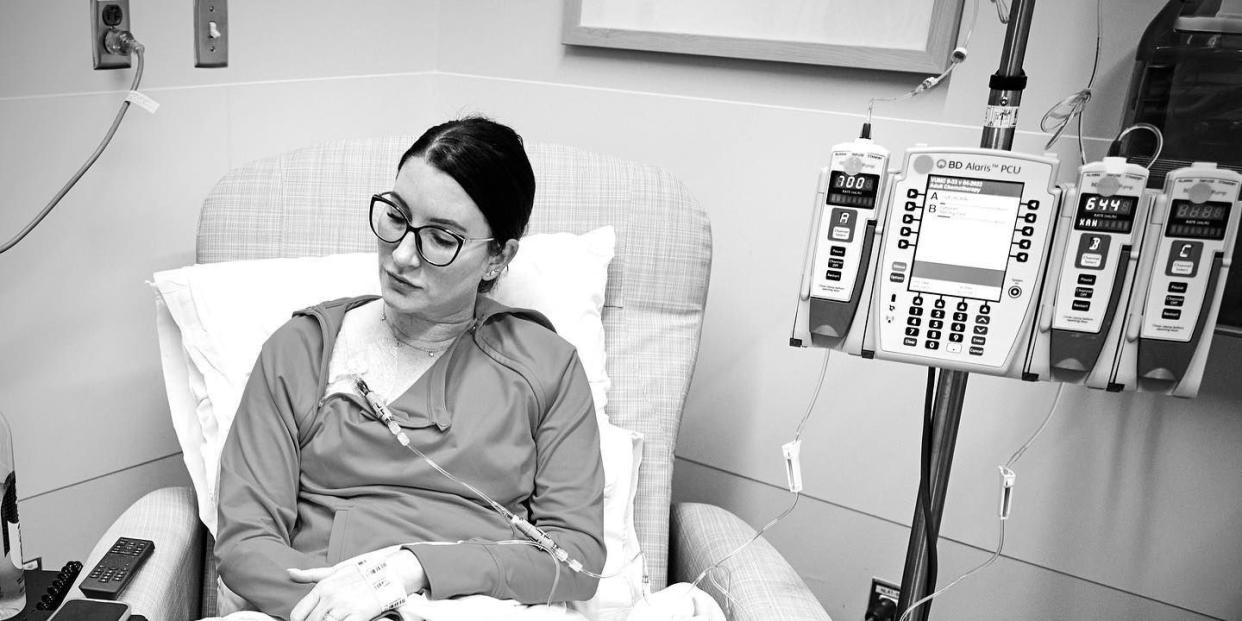
Organizing pro Clea Shearer, star of Netflix’s Get Organized with The Home Edit, discovered a lump in her breast just before she turned 40 years old. After being told she’d need to wait months for a doctor’s appointment, she took matters into her own hands. Here’s her story.
I first felt something in my breast in the summer of 2021—and I kind of ignored it. I thought, “Breasts are just lumpy, and I’m sure it’s nothing,” and went about my life. But in February 2022, right before I was scheduled to go on the TODAY show, I felt it again.
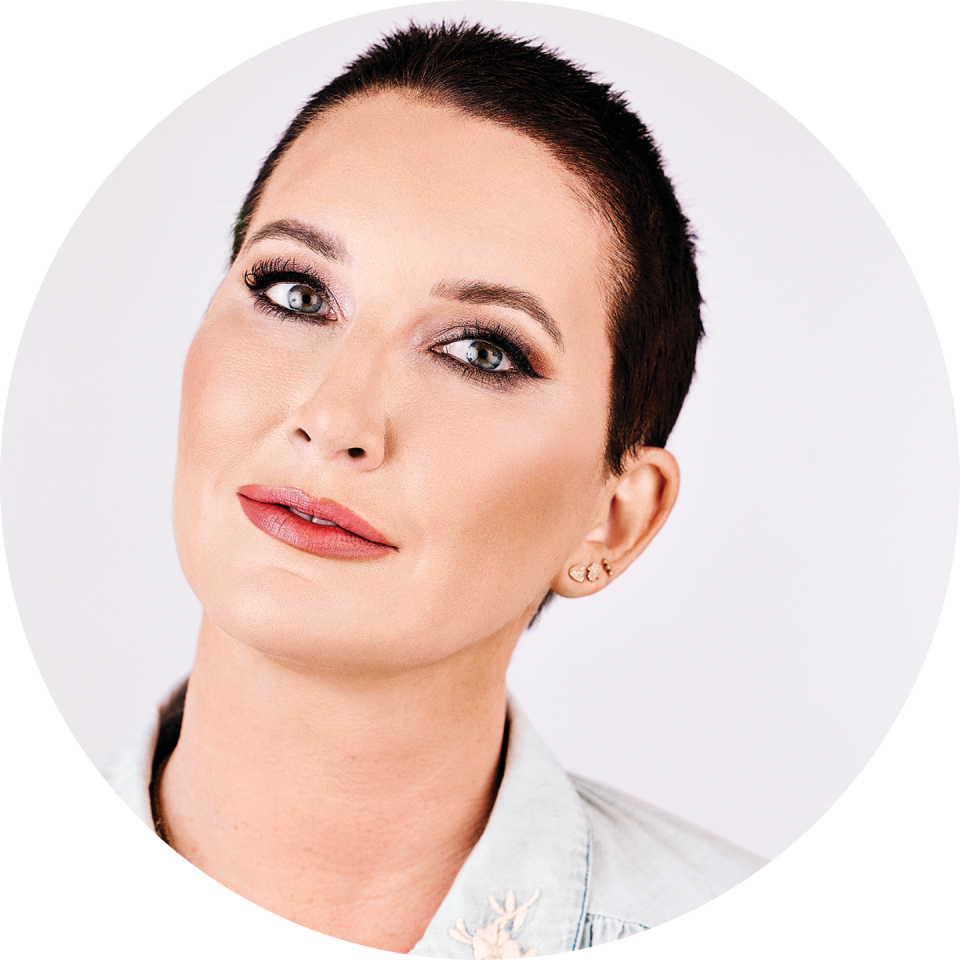
I knew something was off. There was definitely a mass, and it felt like a small-ish rock. (I would later learn that I had two tumors, side by side.) If I hadn’t just turned 40, I don’t think I would have taken it seriously.
The first thing I did was call my ob-gyn’s office—now former ob’s office—and asked if I could get an appointment. I told them that I’d found a lump. But they responded that they were all booked until April and that their May appointments hadn’t even opened up yet. So, I would have to wait at least four months to be seen. And I would have to fight to even get an appointment in May. It was maddening.
I kept pushing for an appointment and telling them that I’d found a lump, only to be given an 800 number to call to schedule a mammogram for myself. I was so frustrated.
‘Honey, you’ve got cancer.’
I ended up calling my primary care doctor who, thankfully, took this very seriously. She booked a mammogram for me and a bilateral ultrasound. I had my appointment a few weeks later—on March 8—and it took about seven hours. I underwent a mammogram, ultrasound, and other testing while my husband waited in the lobby.
That day, I was told that I needed an emergency triple biopsy, so that they could sample the lumps. You don’t receive an official cancer diagnosis until your biopsy is tested in a lab for staging and to determine the type, so most people don’t know their results right away.
But the radiologist was pretty frank with me. I said, “Is there any way this can be anything other than cancer?” She looked at me and said, “Honey, you’ve got cancer.”
I was bracing myself to hear that. My husband and friends thought we were going to rule cancer out, but I felt like it was such a significant mass that I couldn’t imagine it being anything else. It was a real shock to everyone.
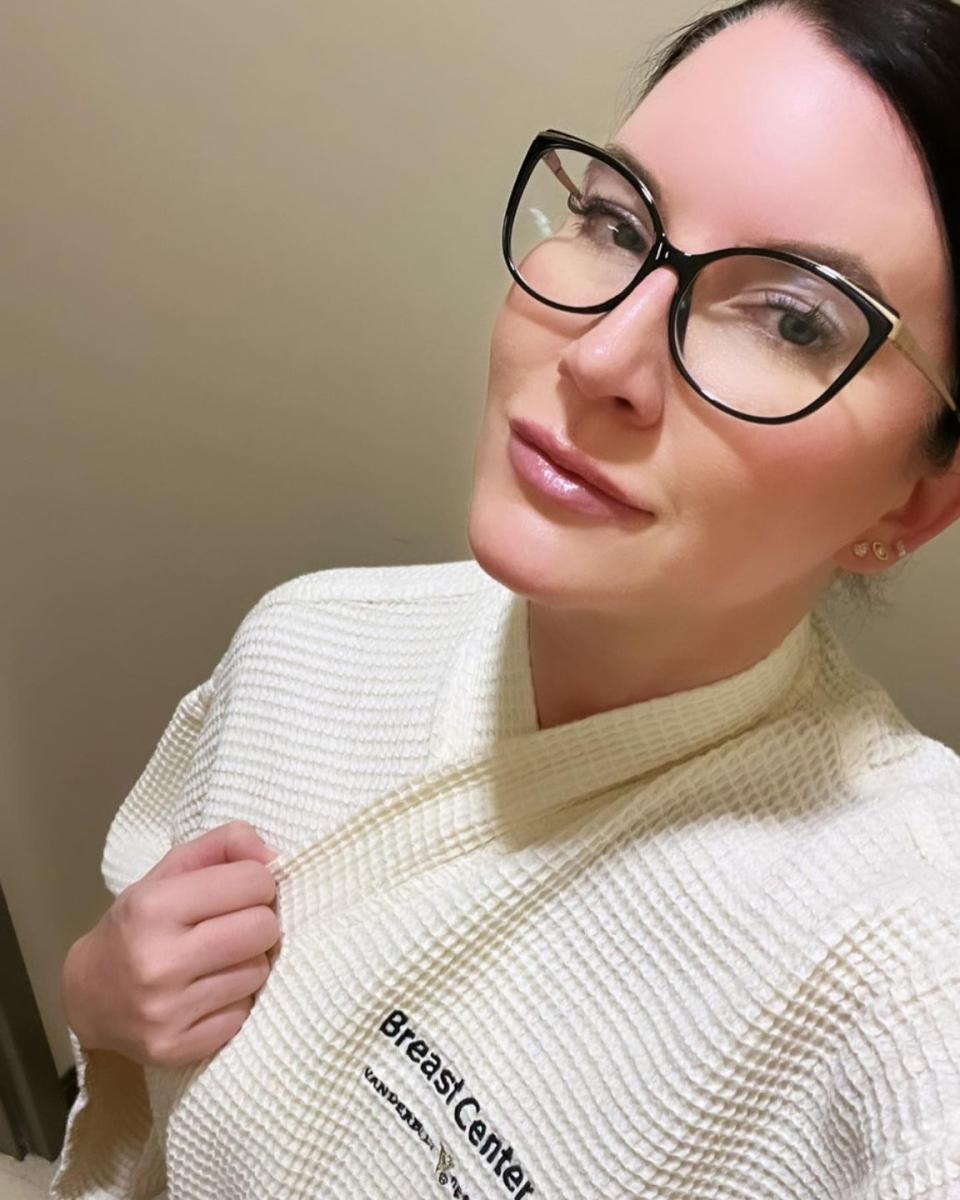
I was absolutely hysterical.
I cried and cried. I had a million fears running through my head. I was trying to tell myself that breast cancer is highly treatable and that I’m not going to die from it. I’m going to live and be treated—I tried to steady myself with that, but I was just terrified.
I had to wait for the pathology report to come back, which would tell me the type and stage of cancer that I had. Doctors were able to rush things through for me and I had a diagnosis within 48 hours: I had a stage 2 invasive mammary carcinoma, an aggressive form of breast cancer.
I panicked again. I was fearful of how I was going to explain this to my kids, Stella and Sutton, and how I was going to be able to still work through my treatments. For someone who is a planner, it’s really hard to be thrown into a world where there’s only so much planning you can do.
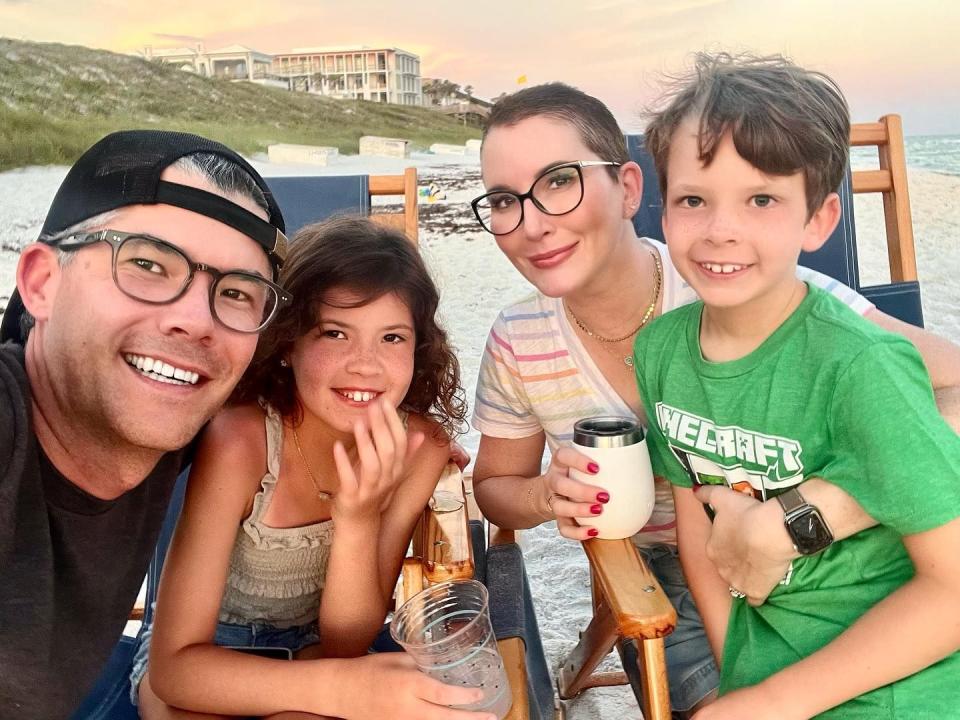
I gave myself a day to have a good cry.
Then, I made a plan on how I was going to tell my kids and everyone in my company, and how I was going to put one foot in front of the other and beat this thing. I had—and have—things I need to do. I was not going to let cancer stop me.
I had a double mastectomy—a surgery where both of my breasts were removed—on April 8. A week later, I had to go back in for surgery because I had developed necrosis, meaning my skin in the area where I had surgery was dying. But I’ve been healing well since then.
I’ve undergone a lot of treatment so far. I’ve had four rounds of a chemotherapy drug called AC and six rounds of another chemotherapy drug, paclitaxel. After that, my oncologist felt the chemo was taking too much of a toll on my body.
Now, it's on to radiation and then hormone therapy, but I'm thrilled to be done with chemo.
Chemotherapy was the hardest thing I've ever gone through.
The reviews are real. Chemo was a really grueling process and you feel really bad. The first four rounds were absolutely the most difficult days I’ve experienced in my life. Not every day was a sick day but, when the side effects hit, they hit really hard and they were really aggressive. Side effects with the last drug I took were much less, but the fatigue was really tough and I had acid reflux issues. They were things that made it challenging to go about my day and eat normal foods.
All I want to do is live my normal life, and I've had to keep pausing every few days because my treatments were weekly. I didn’t have that many recovery days, actually. Every time I got up, I was knocked down.
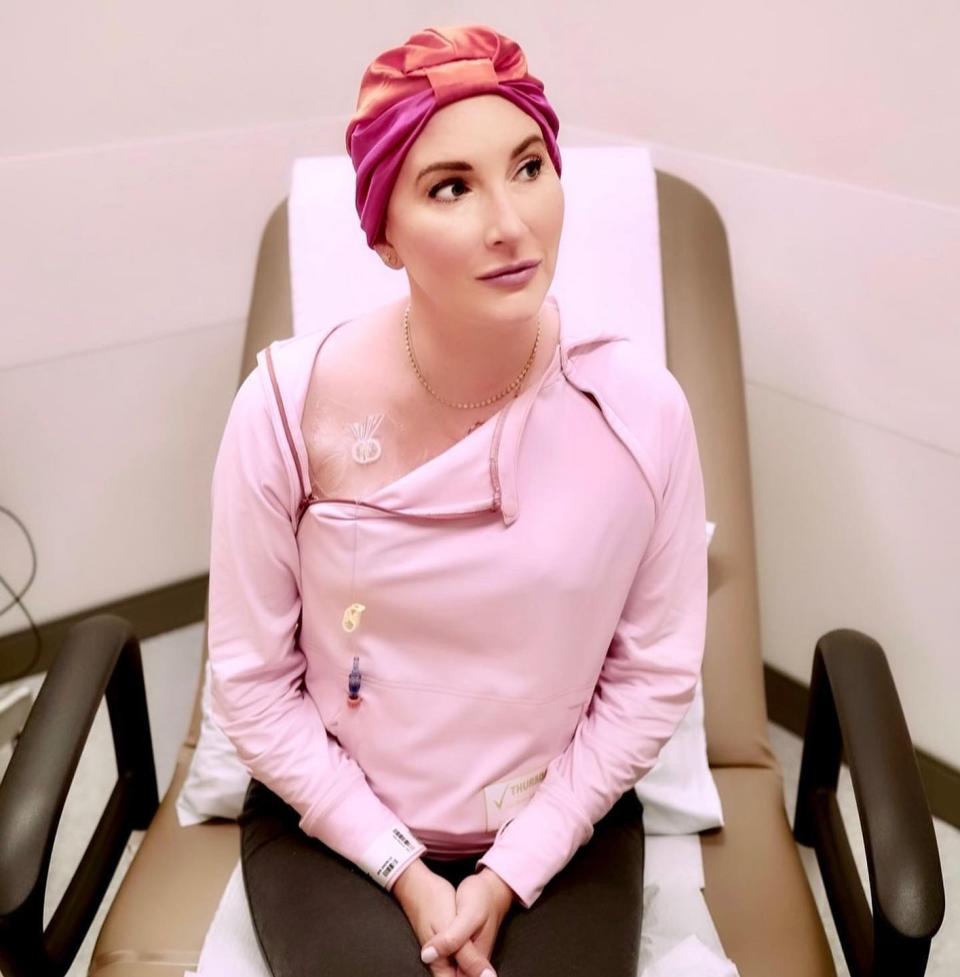
If I hadn't advocated for myself, I could be in a much later stage.
Cancer could have taken over. I think about it every day. I saved my own life. That's why I've been preaching to other women to make sure to get screened, get your mammogram, advocate for yourself, and prioritize your health.
It is a very inconvenient truth to find out you have cancer. We had just sold our company. This was not the time I could spend having cancer. It scares me to think about what would have happened if I had pushed my concerns aside.
If someone says you’re too young for a mammogram, but you have symptoms of breast cancer, push for one.
I recently launched the Clea Shearer Breast Cancer Research Fund, which aims to raise awareness of the importance of early detection and accessible screening services for all women. It’s important for all women to advocate for themselves. If someone says you’re too young for a mammogram, but you have symptoms of breast cancer, push for one.
I definitely had this cancer in me before I turned 40, and current recommendations say that you should start getting regular mammograms at age 50. Doctors told me that the type of cancer I had is aggressive and very fast-moving and, if I had waited, it would have spread more.
It’s so critically important that you listen to your body. If something feels off, you need to say something and push for answers. As I keep telling women, not knowing something is different from not having something. It doesn’t do you any good not to know. You have to make sure you’re prioritizing your health over hugely busy schedules, whether you’re a parent, work full-time, or have an otherwise jam-packed schedule. It’s so critical that you take care of yourself—or you won’t be there for your family.
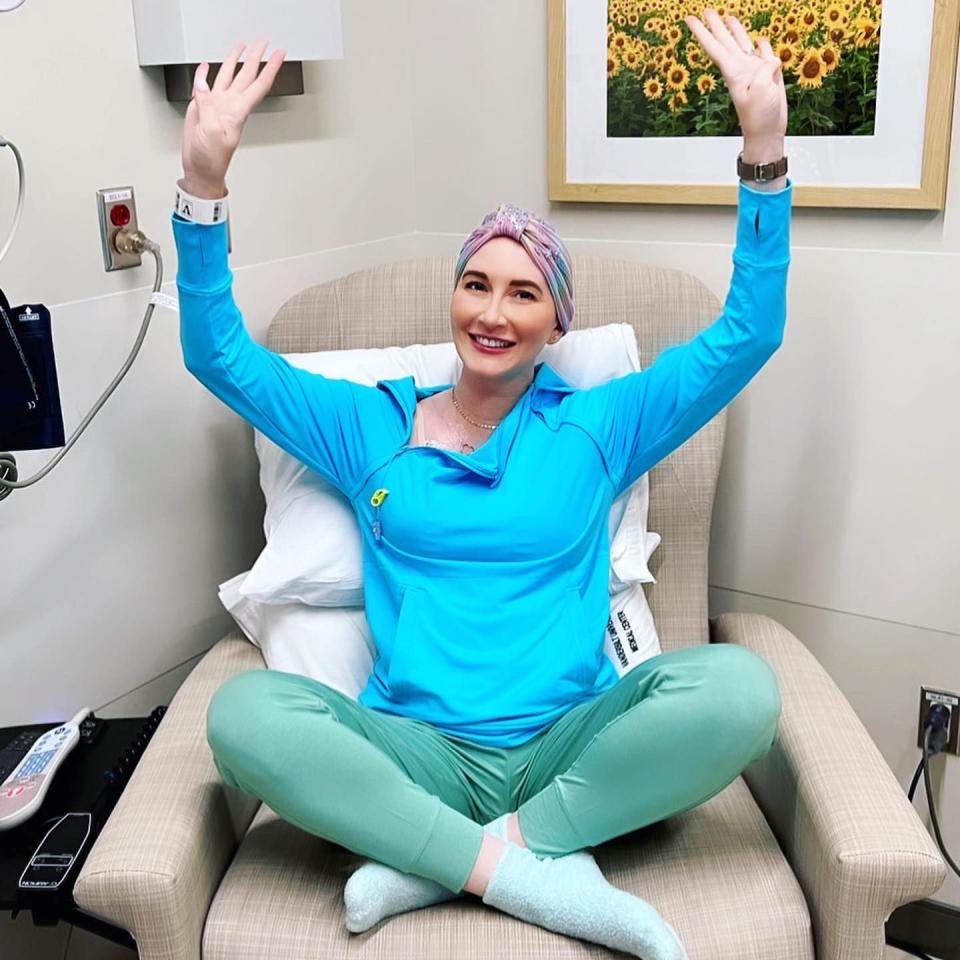
I cannot wait to be done with cancer treatments. I’m going to throw the world’s biggest “I don’t have cancer anymore” party. All I want to do is be able to do normal things again, like go on walks. That day is coming soon—I have just six more weeks of treatment.
My motto is "cancer-free by Thanksgiving." I'm already looking forward to what comes after: a combination of back-to-work in the biggest way and personal time for vacationing with family.
Until then, I'm going to keep fighting.
You Might Also Like
